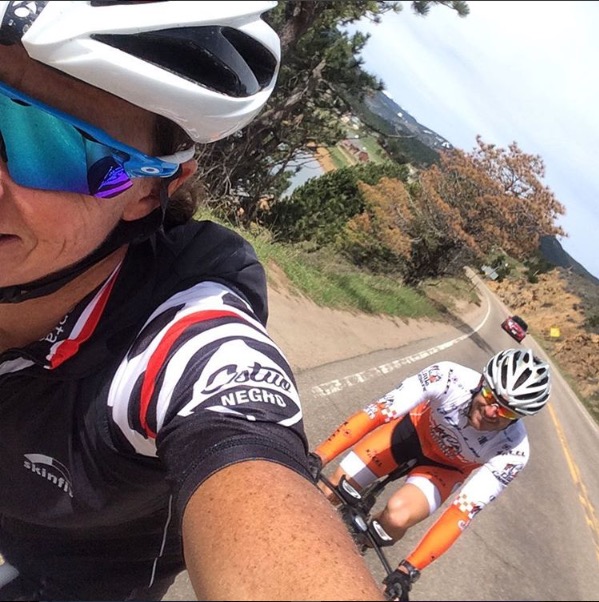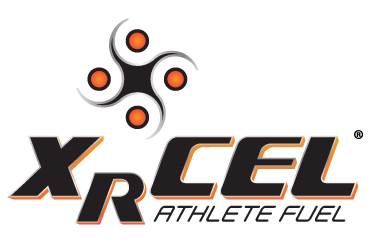
23 May Treat Yourself to a Triathlon Coach
Whether you are training for a sprint or a full distance race, having a triathlon coach definitely has many benefits. Being able to put together a successful race is more than just having a good swim, bike and run on race day. We talked to three of our XRCEL sponsored triathletes, and coaches, Scott DeFilippis, Patrick Evoe, and James Hadley to find out why they feel having a coach in your corner is key when it comes to race preparation and performance.
Triathlon Specialists
With three different disciplines to focus on when training for a triathlon, one might think that it’s best to take advice from different coaches who specialize in swimming, biking, and running. However, just because someone was a former pro cyclist, they aren’t going to have knowledge on how to bike after a swim, while saving your legs for a run. “One of the biggest lessons I got from my mentor, Brett Sutton, is that triathlon is one sport and you must treat it that way. The worst mistake many people make is taking a bit of advice from a swim coach, a bit from cycling expert, and a bit from a runner. You have to look at triathlon as three events in one,” said pro triathlete Scott DeFilippis.
Structure
The saying, “You don’t know what you don’t know,” can definitely apply to triathlon racing. No matter what the distance your triathlon race may be, a coach can put together a specific plan to help you be successful. “One of the biggest mistakes I see triathletes make is that they over train for a race and then go terribly on race day,” said pro triathlete James Hadley. “ A coach can take a step back and look at things from a holistic view without emotion, fatigue or any other influences and keep the athlete on the right training path.” Hadley adds that “ when you need to put in that extra 1% of work, it’s easier to switch off your mind and save energy when you have a coach telling you exactly what to do in training.” Sounds like a plan!
Keeping it Real
Whether it’s your first or thirtieth triathlon, it’s easy to get excited to train and set expectations at an all-time high. Who doesn’t want to do well? This can become a problem if your goals are a little too lofty for where you are at physically, the difficulty of the course, typical weather for that race location, as well as how much training is actually attainable during your normal week. A coach can see the big picture and factor in reality so that you can maintain an achievable goal as well as improve in order to get to the next possible goal. “It’s great when my athletes want to race fast, but I always make sure we break down their swim, bike, and run goals so that they focus on each moving part with realistic goals based on what their training has actually been like going into the race,” added pro triathlete Pat Evoe.
Motivation
“One of the most motivating factors for me when I am in a training session I don’t want to do or don’t feel well doing is knowing that I have to report my workout to my coach,” said Evoe. “There’s a level of accountability in having a coach and you’re more likely to grind out that tough workout or challenge yourself if things aren’t going your way.” With that said, many coaches will log your workouts so that they can see your progress and reassess your training in order to help you meet your goals. Coaches can keep you honest in your training and help you find a way to get even the toughest workouts completed. “It’s easy to make excuses for yourself when you’re tired and you don’t have a coach,” added Hadley.
Nail Your Nutrition
“Know your nutrition. Know what it is supposed to do for you, how it works, and when you need to consume it,” says DeFilippis. It can be easy to overlook nutrition as part of your “race plan,” but take it from our pros, practicing how, when, and what kind of nutrition you take is just as vital as any swim, bike, or run session. “Having a coach can remind you to practice your nutrition in training so that you can find what works for you. I have my athletes report how they felt when they took certain products during workouts so we can assess and change anything in order to get it right for race day, ” adds Evoe. Coaches are great for guiding triathletes down different nutritional paths and can base the amount of nutrition you will need depending on the distance of your triathlon. Many athletes tend to over or under consume the amount of calories need to be effective. ” I use, and recommend, XRCEL as my carbohydrate source because of its extended release properties and the fact that it’s easy on my stomach. Whether it’s XRCEL or any other nutrition product, you have to make sure you properly plan out and try your nutritional strategy several times before your big race,” notes DeFilippis.
Expect the Unexpected
One of the best and worst things about race day is that things can go differently than you planned. Hopefully, it means you are feeling better and racing faster than you had planned, but sometimes it can turn into the complete opposite. Having a coach is great for helping you prepare for the unexpected on race day. “One thing I always go over with my athletes is what to do if something goes wrong. We talk about possible scenarios that they may have dealt with in past races or that they are worried about and then we come up with possible solutions. This seems to help them go into the race more mentally settled since they have a backup plan and aren’t stressing about what could go wrong,” said Evoe. Problem solved!
Before you start training for your next triathlon, maybe you should ask yourself, “Do I really know how to prepare myself for this race?” Like most of us, we could probably use a little guidance, so take it from our pro triathletes and treat yourself to a triathlon coach!







No Comments